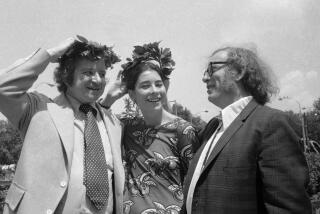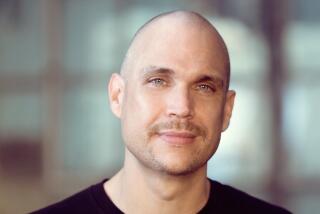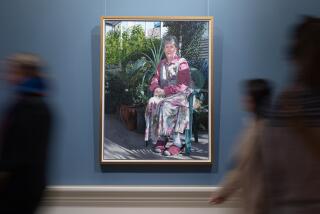James Kavanaugh dies at 81; former Catholic priest wrote book calling for church reform
James Kavanaugh, a former Catholic priest who came to fame in 1967 with his controversial bestseller calling for reform in the church and later wrote bestselling books of poetry and other works, has died. He was 81.
Kavanaugh, who underwent surgery for an aortic aneurysm in July, died Dec. 29 in a hospice in Kalamazoo, Mich., said his wife, Cathy.
Ordained in 1954, Kavanaugh served as a parish priest in Lansing and Flint, Mich., and earned a doctorate at the Catholic University of America in Washington, D.C., before the publication of “A Modern Priest Looks at His Outdated Church” in 1967.
The book, in which he called for church reforms on issues such as birth control, divorce, premarital sex and celibacy for priests, quickly became a national bestseller.
A New York Times reviewer called it “a personal cry of anguish that goes to the heart of the troubles plaguing the Catholic Church.”
“I was naive enough to think that ‘Modern Priest’ would turn things around in the church and that I could still stay in the priesthood,” Kavanaugh told the San Diego Union-Tribune in 1984. “I had no idea the book would have the impact it did.”
Look magazine purchased the serial rights, and Kavanaugh made the rounds of talk shows, including Johnny Carson’s “Tonight Show.” He also was in great demand to speak on college campuses around the country.
The book followed up an article Kavanaugh had written for the Saturday Evening Post’s “Speaking Out” page. Written under the pseudonym Father Stephen Nash, it was titled “I am a Priest and I Want to Marry.”
The article reportedly generated “Speaking Out’s” heaviest reader response, and the magazine forwarded the missives to Kavanaugh.
“He got so many thousands of letters, it filled up half my garage,” recalled his brother, Dr. Philip Kavanaugh.
The vast majority of the letters were positive, he said, “the most notable” being one from “Dear Abby” advice columnist Abigail Van Buren.
“She wrote a brief letter saying, ‘I’ve received hundreds of thousands of letters, but this is the first fan letter I’ve ever written,’ ” he said.
For both the clergy and the laity, Philip Kavanaugh said, “Jim was a spiritual permission-giver to question authority and to trust their own instincts and beliefs. It had been suppressed previously in the church.”
Kavanaugh left the priesthood several months after his book’s publication.
“He resigned formally on the stage at Notre Dame University,” where he was delivering a speech to a large audience made up mostly of priests and nuns, said Philip Kavanaugh. At one point, “he ripped off his collar, threw it on the ground, stamped on it and said, ‘I will never wear this again!’ ”
In a 1985 interview with The Times, James Kavanaugh explained that midway through his talk at Notre Dame, “I got carried away. . . . The church had done a lot of damage to people’s personal lives, and I felt compelled to say so.”
In the early ‘70s, Kavanaugh published his first book of poetry, the bestselling “There Are Men Too Gentle to Live Among Wolves.”
“I am one of the searchers,” he wrote in the prologue. “There are, I believe, millions of us. We are not unhappy, but neither are we really content. We continue to explore life, hoping to uncover its ultimate secret.”
Kavanaugh’s spiritual journey began in Kalamazoo, Mich., where he was born Sept. 17, 1928.
The fourth of seven sons of an Irish Catholic family, he entered St. Joseph’s Seminary in Grand Rapids at age 15. (His brother, Robert, also became a priest, and they both left the priesthood within a month of each other).
Kavanaugh published more than two dozen books, including works of poetry, nonfiction and allegories (“Celebrate the Sun: A Love Story” and “A Village Called Harmony -- A Fable”) and two novels (“A Coward for Them All” and “The Celibates”).
Kavanaugh, who suffered bouts of depression over the years, was not a big fan of self-help books.
“I burn all self-help books or tapes in which hyped heroes tell me how easy it is to put one’s life together,” he wrote in the newsletter of the James Kavanaugh Institute, which was launched in the early ‘80s to promote his inspirational book “Search: A Guide for Those Who Dare to Ask of Life Everything Good and Beautiful” and associated workshops.
“I need those who are still wading through pain, who must struggle at times just to hang on,” he wrote. “I don’t believe in quick fixes and I’m outraged when anyone promises one.”
In addition to his wife and brother Philip, the twice-divorced Kavanaugh is survived by a stepdaughter, Katherine Markel; a stepson from a previous marriage, Chris Grove; and brothers Dr. Thomas Kavanaugh and Dr. Daniel Kavanaugh.
A virtual memorial service is online at james-kavanaugh.memory-of.com.
More to Read
Start your day right
Sign up for Essential California for the L.A. Times biggest news, features and recommendations in your inbox six days a week.
You may occasionally receive promotional content from the Los Angeles Times.






